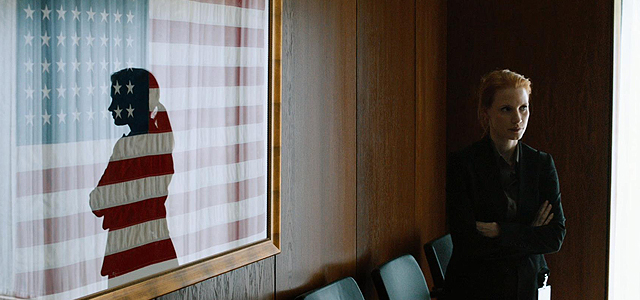(MA) Jessica Chastain, Joel Edgerton, Kyle Chandler
May 2, 2011, was a seminal news day.
When news broke that Osama bin Laden had been caught and killed, emotions positive and sceptical flooded the social media universe and news reports the world over. But, while many celebrated, most doubted it was the end of global terrorism.
So it really isn’t a surprise that Kathryn Bigelow’s dramatisation of the US operation that found and killed the leader of al-Qaeda is a little schizophrenic.
Bigelow, who won an Oscar for The Hurt Locker, provides us with an almost documentary look at the event.
Simply by choosing to portray certain events — like the torture scenes that seem brutal and pointless in the early collection of intelligence and the final bloody raid, both celebratory and sympathetic — she unavoidably offers a viewpoint. She doesn’t know either.
And it’s exactly this approach that helps the film work so well because it forces the viewer to draw their own conclusions. In the end, the film represents the director and writer’s (Mark Boal) point of view that there is no black and white; only annoying shades of grey.
One thing is clear, though: by steering clear of the politics and focusing on the people carrying out the mission, Bigelow paints a view of the human experience — the struggles between justice and mercy, war and peace.
One thing is clear, though: by steering clear of the politics and focusing on the people carrying out the mission, she paints a view of the human experience — the struggles between justice and mercy, war and peace.
The film wouldn’t be as effective as it is were it not for the excellent performances of the talented cast, particularly Jessica Chastain as Maya (nominated for a Best Actress Oscar), a feisty young CIA agent committed to killing bin Laden but who is resolute and uncertain, confident and confused, about the mission at hand.
The ambivalence is displayed in a number of ways, not the least of which are the early brutal torture scenes carried out to provide intelligence for the operation. Bigelow has been faulted by critics who have called the scenes “politically and morally reprehensible”, arguing they make a case for the “efficacy of torture”.
I’m not convinced, however, as viewing these scenes can make one feel deeply uncomfortable. They are dehumanising and degrading. Again Bigelow is making the viewer decide.
Conflicted emotions are also evident in the climax, as even Maya seems both scarred and satisfied by the outcome of the mission.
It’s this complex look at what the world has become since 9/11 that makes this such an important film. The war on terror has now become part of political rhetoric and, for better or worse, part of the cultural and moral landscape.
The film asks all these questions and more: What in fact is justice? Do we believe war is always necessary or always wrong? How do we live as ministers of reconciliation? What does it really look like in a post 9/11 world? Did bin Laden’s death bring closure to the families of 9/11’s victims?
It’s precisely that these questions are raised by this film that makes Zero Dark Thirty worth your attention.
Adrian Drayton












